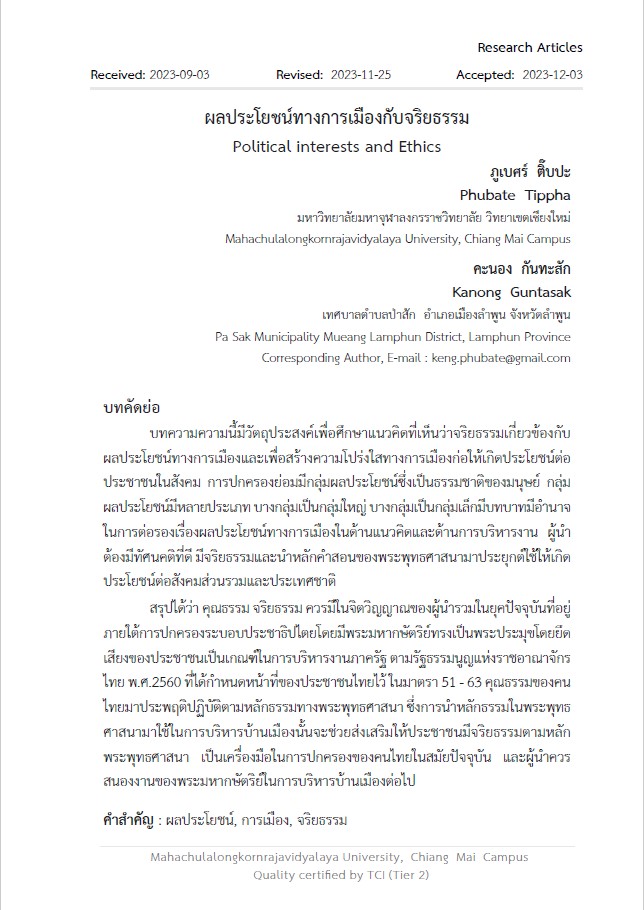Political interests and Ethics
Main Article Content
Abstract
This academic paper has two objectives: (1) to study the concept that ethics is related to political interests, and (2) to create political transparency that benefits people in society. Any form of government exists in this world. Inevitably there are interest groups which are human nature. There are different types of interest groups. Some groups are large groups. Some small groups have the power to negotiate political interests. in terms of concepts and management Leaders must have a positive attitude. Have ethics and apply the teachings of Buddhism for the benefit of society as a whole and the nation.
Suffice it to conclude that virtue and ethics should be in the spirit of the collective leaders in the current era under a democratic system with the King as the head of state. by adhering to the voice of the people as a criterion for government administration According to the Constitution of the Kingdom of Thailand B.E. which brings the principles of Buddhism to be used in the administration of that country will help encourage people to have ethics according to Buddhist principles It is a tool for the administration of the Thai people in modern times. And the leader should continue to serve the King's work in the administration of the country.
Article Details
References
ประพันธ์พงศ์ เวชชาชีวะ. (9 มกราคม 2563). กลุ่มผลประโยชน์หรือกลุ่มอิทธิพลกับพรรคการเมือง
ในสังคมประชาธิปไตย. หนังสือพิมพ์แนวหน้า, น.2
เพลินตา ตันรังสรรค์. (2552). กฎหมายภายใต้หลัก Conflict of Interest. จุลนิติสถาบันนิติบัญญัติ.
(5), 53-78.
ผาสุก พงศ์ไพจิตร. (2 พฤศจิกายน 2548). การทับซ้อนของผลประโยชน์ กับความเจริญเติบโตทาง
เศรษฐกิจ. หนังสือพิมพ์มติชน, น.6
พระปลัดเกษฎา มหาปญฺโญ (ผาทอง). (2559). ยุทธศาสตร์การพัฒนาประชาธิปไตยและกระบวนการประชาสังคมไทย
ภายใต้กระบวนทัศน์หลักธรรมทางพระพุทธศาสนา. วารสารธรรมทรรศน์. 16 (2), 263-264.
สัญญา เคณาภูมิ. (2558). วิถีประชาธิปไตยของพลเมืองในระบอบประชาธิปไตย. วารสารวไลย
อลงกรณ์. 5 (2), 195-196.


